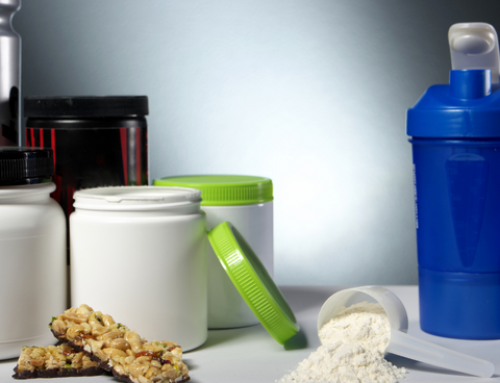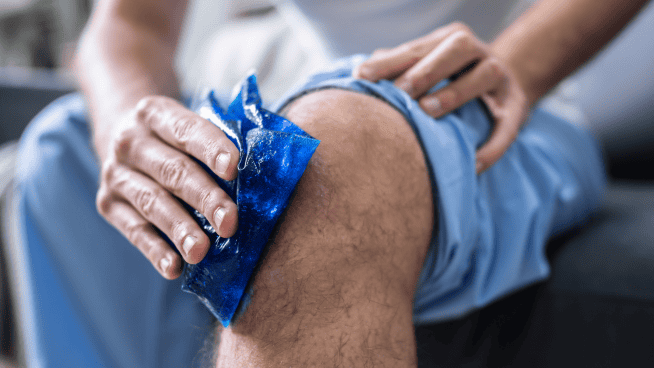What to Look for in a Pre-Workout Supplement
Pre-workout supplements promise to transform your workouts. You’ll be more energized, you’ll smash weights like never before and you’ll visit Swole City.
You wouldn’t be wrong for thinking a magical potion will help you achieve your workout goals. But don’t be fooled. Your hard work and nutrition are the keys to a successful workout.
Can a quality pre-workout supplement help your cause? Absolutely. But finding a quality product can be difficult in a market loaded with garbage and misinformation.
We consulted with Tavis Piattoly, sports dietitian and co-founder of My Sports Dietitian, to help you wade through the murky waters of pre-workout supplements so you can find a safe and effective product that’s worth your money.
What is a pre-workout supplement?
A pre-workout supplement is designed to energize your body, improve the quality of your workout and ideally improve your performance.
“The purpose of a pre-workout is to provide stimulation to get your heart rate up and blood pumping to help you have energy,” says Piattoly. “This is typically achieved with a dose of caffeine and possibly other ingredients that help the body absorb caffeine faster.”
Pre-workouts may also contain ingredients that promise to increase muscular endurance, strength, power and speed, and provide a greater muscle pump to help build bigger muscles.
Great, but do they work?
That largely depends on the ingredients.
“Many supplement companies create a proprietary blend for their pre-workout supplements,” Piattoly says. “The company does that to scam the consumer. You look at it and go, ‘Wow, this is a great product because there’s a lot of stuff in it.’”
Unfortunately, many products are loaded with ingredients that aren’t backed up by science—or there’s not enough of an ingredient for it to actually work. You end up paying for a supplement that might make you feel amped up and tingly, but is basically equivalent to a cup of strong coffee.
That said, a properly formulated supplement that includes thoroughly researched ingredients should help improve your workouts by increasing your energy, strength and endurance. It won’t be a dramatic increase such as taking 8 reps to 15 reps, but you might see small improvements.
How do I find a quality pre-workout supplement?
If you see a supplement that has a “proprietary blend,” you need to run in the opposite direction. That’s a telltale sign that the supplement is sketchy and the manufacturer is trying to hide something.
According to Piattoly, supplement salesmen also pose a problem. They often have limited knowledge of the science behind the ingredients and might inadvertently push someone toward an ineffective, banned or dangerous product.
“Last year I had 10 athletes—three of them that I personally saw as clients—who were sold pre-workouts that had a banned substance,” Piattoly says. “And I had seven other athletes through athletic trainers and coaches asking about products kids were recommended, and three of them were testosterone boosters and the other four were pre-workouts that had synephrine [a banned substance for athletes].”
Put simply, you need to do your research. Look at ingredient lists with a sharp eye. If you see an ingredient that you don’t recognize, look it up to make sure it’s safe. One of the best resources for researching ingredients is Examine.com.
If you’re an athlete, you need to double check that your pre-workout supplement is free of substances banned in your sport. Look for NSF (the gold standard for athletes), Informed Choice and/or Banned Substance Control Group logos on the supplement packaging to confirm that the product won’t get you in trouble.
What ingredients are effective, ineffective or dangerous?
Many ingredients are found in supplements. We’ll cover some of the common ones.
Effective Ingredients
Caffeine (100-200 mg). Caffeine is a safe and effective substance that boosts energy levels and has numerous performance benefits, which we covered here.
Creatine Monohydrate (3 g). Although creatine is typically best taken after a workout, Piattoly recommends taking about 3 grams beforehand for a nice strength benefit. Creatine is one of the most thoroughly researched supplements and is considered safe and effective.
Beta-Alanine (2-5g). Increases muscular endurance by delaying fatigue from lactic acid buildup and may help increase muscle size.
Vitamin D (1,000 – 2,000 IU). Improves recovery from exercise and positively impacts cardiovascular fitness and muscle strength. The vast majority of people are deficient in Vitamin D, so this is essential. Learn more about the performance benefits of Vitamin D here.
Magnesium (200-400 mg). Another common deficiency, magnesium plays an essential role in muscle contractions, muscle growth and many essential bodily functions.
Peak ATP (400 mg). A relatively new ingredient that promises to increase strength, power, lean body mass and muscle thickness.
Beetroot (500 mg). Beetroot extract may increase the muscle pump from strength training and also improve endurance.
Common ingredients that don’t work in a pre-workout supplement
These ingredients won’t necessarily harm you; however, Piattoly says research doesn’t support their inclusion in a pre-workout supplement.
- Glutamine
- Branched-Chain Amino Acids
- Arginine
- D-Aspartic Acid
- Agmatine Sulfate
Dangerous or Banned Ingredients
The most common banned ingredient in pre-workouts is DMAA. According to the FDA, DMAA can “elevate blood pressure and lead to cardiovascular problems ranging from shortness of breath and tightening in the chest to heart attack.” It is particularly problematic when consumed with caffeine.
Athletes need to be aware of synephrine (also called bitter orange), a stimulant that replaced the banned fat-burning supplement ephedrine. Synephrine is legal for non-athletes, but there are health concerns, including elevated blood pressure and resting heart rate. It is banned substance by the NCAA; however, it is allowed by the World Anti-Doping Association.
Piattoly says you also need to consider the amount of stimulants in a supplement. A product with a heavy dose of caffeine (over 200 mg) combined with synephrine and other stimulants, such as yohimbe, can cause problems if you’re not careful—especially if you have a pre-existing heart condition.
Do you really need a pre-workout supplement?
Absolutely not. “Your energy is going to come from your diet, your rest and regular training habits,” asserts Piattoly. “If these things are in check, a pre-workout isn’t essential.”
It’s possible to prepare for an intense workout by eating something like a banana with about 100 calories of carbohydrates and a cup of coffee if you need a burst of energy. But a supplement that packs a few extra ingredients may make your training a bit more effective.
READ MORE:
RECOMMENDED FOR YOU
What to Look for in a Pre-Workout Supplement
Pre-workout supplements promise to transform your workouts. You’ll be more energized, you’ll smash weights like never before and you’ll visit Swole City.
You wouldn’t be wrong for thinking a magical potion will help you achieve your workout goals. But don’t be fooled. Your hard work and nutrition are the keys to a successful workout.
Can a quality pre-workout supplement help your cause? Absolutely. But finding a quality product can be difficult in a market loaded with garbage and misinformation.
We consulted with Tavis Piattoly, sports dietitian and co-founder of My Sports Dietitian, to help you wade through the murky waters of pre-workout supplements so you can find a safe and effective product that’s worth your money.
What is a pre-workout supplement?
A pre-workout supplement is designed to energize your body, improve the quality of your workout and ideally improve your performance.
“The purpose of a pre-workout is to provide stimulation to get your heart rate up and blood pumping to help you have energy,” says Piattoly. “This is typically achieved with a dose of caffeine and possibly other ingredients that help the body absorb caffeine faster.”
Pre-workouts may also contain ingredients that promise to increase muscular endurance, strength, power and speed, and provide a greater muscle pump to help build bigger muscles.
Great, but do they work?
That largely depends on the ingredients.
“Many supplement companies create a proprietary blend for their pre-workout supplements,” Piattoly says. “The company does that to scam the consumer. You look at it and go, ‘Wow, this is a great product because there’s a lot of stuff in it.’”
Unfortunately, many products are loaded with ingredients that aren’t backed up by science—or there’s not enough of an ingredient for it to actually work. You end up paying for a supplement that might make you feel amped up and tingly, but is basically equivalent to a cup of strong coffee.
That said, a properly formulated supplement that includes thoroughly researched ingredients should help improve your workouts by increasing your energy, strength and endurance. It won’t be a dramatic increase such as taking 8 reps to 15 reps, but you might see small improvements.
How do I find a quality pre-workout supplement?
If you see a supplement that has a “proprietary blend,” you need to run in the opposite direction. That’s a telltale sign that the supplement is sketchy and the manufacturer is trying to hide something.
According to Piattoly, supplement salesmen also pose a problem. They often have limited knowledge of the science behind the ingredients and might inadvertently push someone toward an ineffective, banned or dangerous product.
“Last year I had 10 athletes—three of them that I personally saw as clients—who were sold pre-workouts that had a banned substance,” Piattoly says. “And I had seven other athletes through athletic trainers and coaches asking about products kids were recommended, and three of them were testosterone boosters and the other four were pre-workouts that had synephrine [a banned substance for athletes].”
Put simply, you need to do your research. Look at ingredient lists with a sharp eye. If you see an ingredient that you don’t recognize, look it up to make sure it’s safe. One of the best resources for researching ingredients is Examine.com.
If you’re an athlete, you need to double check that your pre-workout supplement is free of substances banned in your sport. Look for NSF (the gold standard for athletes), Informed Choice and/or Banned Substance Control Group logos on the supplement packaging to confirm that the product won’t get you in trouble.
What ingredients are effective, ineffective or dangerous?
Many ingredients are found in supplements. We’ll cover some of the common ones.
Effective Ingredients
Caffeine (100-200 mg). Caffeine is a safe and effective substance that boosts energy levels and has numerous performance benefits, which we covered here.
Creatine Monohydrate (3 g). Although creatine is typically best taken after a workout, Piattoly recommends taking about 3 grams beforehand for a nice strength benefit. Creatine is one of the most thoroughly researched supplements and is considered safe and effective.
Beta-Alanine (2-5g). Increases muscular endurance by delaying fatigue from lactic acid buildup and may help increase muscle size.
Vitamin D (1,000 – 2,000 IU). Improves recovery from exercise and positively impacts cardiovascular fitness and muscle strength. The vast majority of people are deficient in Vitamin D, so this is essential. Learn more about the performance benefits of Vitamin D here.
Magnesium (200-400 mg). Another common deficiency, magnesium plays an essential role in muscle contractions, muscle growth and many essential bodily functions.
Peak ATP (400 mg). A relatively new ingredient that promises to increase strength, power, lean body mass and muscle thickness.
Beetroot (500 mg). Beetroot extract may increase the muscle pump from strength training and also improve endurance.
Common ingredients that don’t work in a pre-workout supplement
These ingredients won’t necessarily harm you; however, Piattoly says research doesn’t support their inclusion in a pre-workout supplement.
- Glutamine
- Branched-Chain Amino Acids
- Arginine
- D-Aspartic Acid
- Agmatine Sulfate
Dangerous or Banned Ingredients
The most common banned ingredient in pre-workouts is DMAA. According to the FDA, DMAA can “elevate blood pressure and lead to cardiovascular problems ranging from shortness of breath and tightening in the chest to heart attack.” It is particularly problematic when consumed with caffeine.
Athletes need to be aware of synephrine (also called bitter orange), a stimulant that replaced the banned fat-burning supplement ephedrine. Synephrine is legal for non-athletes, but there are health concerns, including elevated blood pressure and resting heart rate. It is banned substance by the NCAA; however, it is allowed by the World Anti-Doping Association.
Piattoly says you also need to consider the amount of stimulants in a supplement. A product with a heavy dose of caffeine (over 200 mg) combined with synephrine and other stimulants, such as yohimbe, can cause problems if you’re not careful—especially if you have a pre-existing heart condition.
Do you really need a pre-workout supplement?
Absolutely not. “Your energy is going to come from your diet, your rest and regular training habits,” asserts Piattoly. “If these things are in check, a pre-workout isn’t essential.”
It’s possible to prepare for an intense workout by eating something like a banana with about 100 calories of carbohydrates and a cup of coffee if you need a burst of energy. But a supplement that packs a few extra ingredients may make your training a bit more effective.
READ MORE:










